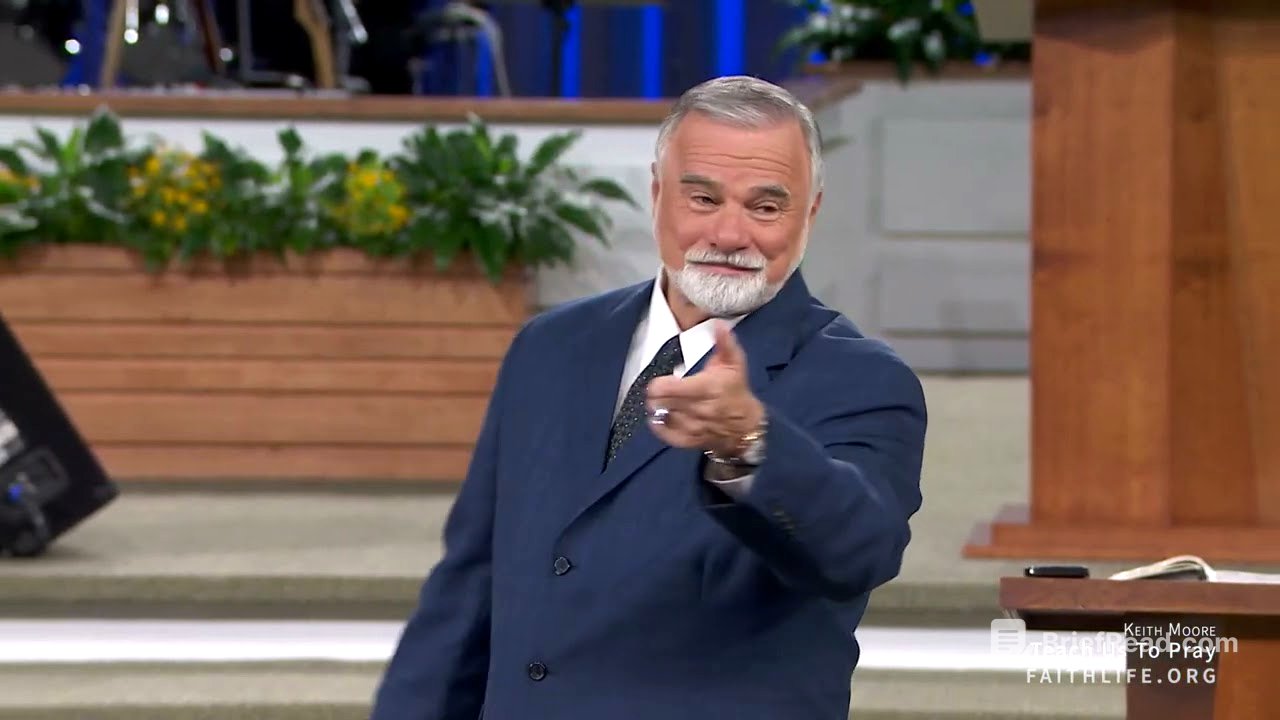TLDR;
This video is the third part of a series titled "Teach Us To Pray," focusing on understanding and practicing effective prayer. It emphasizes that true prayer is about communion and fellowship with God, not just religious rituals or vain repetitions. The teachings are based on Luke 11 and Matthew 6, highlighting what to avoid in prayer and how to cultivate a genuine relationship with God through prayer.
- True prayer is communion and fellowship with God.
- Avoid vain repetitions and praying for show.
- Cultivate a genuine, humble relationship with God.
Introduction: Teach Us to Pray Series [0:00]
The speaker introduces the third lesson in the "Teach Us to Pray" series, referencing Luke 11 and Matthew 6. He explains that the disciples asked Jesus to teach them to pray, similar to how John taught his disciples. Jesus responded by providing what is commonly known as the Lord's Prayer, which isn't meant to be repeated robotically but serves as a guide for the main areas to focus on when praying.
What Not to Do When Praying [1:56]
The speaker transitions to Matthew 6, noting it provides more detail on prayer. Jesus begins by instructing them on what not to do when praying, cautioning against praying like hypocrites who seek to be seen by others. He emphasizes that some prayers are useless or even abhorrent to God, such as praying to false gods or for selfish, unrighteous desires. Quoting Proverbs, he warns that turning away from God's law makes even prayer an abomination.
Praying in Alignment with God's Will [4:59]
Referencing John 15:7, the speaker explains that effective prayer aligns with God's word and will, born out of daily communion with Him. He advises against praying for personal gain or to impress others, stressing the importance of praying in secret with genuine faith. He also warns against using vain repetitions, as the Heathen do, thinking they will be heard for their much speaking. God already knows what you need before you ask, so there's no need to repeat requests endlessly.
The Essence of Prayer: Communion and Fellowship [10:53]
The speaker defines prayer as communion and fellowship with God, emphasizing it's about spending time with Him, talking, listening, and sharing. He contrasts this with the religious rituals that prayer has often become. Referencing Luke 18:1, he highlights the importance of praying always and not giving up. He encourages daily prayer as a way of life, not just a Sunday activity, involving talking to and listening to God.
Parable of the Persistent Widow and the Pharisee and the Publican [14:35]
The speaker references the parable of the unjust judge and the persistent widow to illustrate that persistence in prayer pays off. He contrasts an ungodly ruler giving in to someone who wouldn't quit with how much more God will avenge His elect who cry day and night to Him. He also shares the Parable of the Pharisee and the Publican from Luke 18:9-14, contrasting the self-righteous prayer of the Pharisee with the humble plea of the Publican, who sought God's mercy. Jesus affirms that the Publican went home justified, highlighting that humility is key to connecting with God.
The Fall of Man and the Loss of Communion [30:59]
The speaker transitions to Genesis 3, discussing the fall of man and the loss of communion with God. Before sin, Adam and Eve had no shame or fear, but after disobeying God, they gained knowledge of evil and tried to cover their mistakes with fig leaves. They hid from God, who called out to them, showing that sin disrupts the intimate relationship God intended. The speaker notes that before the fall, God personally visited them regularly, walking in the garden and communing with them.
The Call to Fellowship and Walking with God [40:55]
The speaker emphasizes that believers are called to fellowship with God, referencing 1 Corinthians 1:9 and 2 Corinthians 13:14. He explains that every believer is called to fellowship, which is their first and most important call. He defines "walking with God" as keeping in step with Him, being in agreement and in accord with His will. It's not just working for God but working with Him, which requires prayer and listening to His guidance.
Enoch's Example of Walking with God [48:25]
The speaker uses Enoch from Genesis 5 as an example of walking with God. Enoch walked with God for 300 years and was eventually taken by God. Hebrews 11:5-6 explains that Enoch pleased God through faith. The speaker suggests that Enoch, inspired by stories of Adam and Eve's communion with God, chose to seek that same relationship. Through genuine faith and love, Enoch sensed God's presence and spent more time in communion with Him, leading to a deeper relationship where God's thoughts became clear to him.
Practical Steps to Walking with God [59:06]
The speaker encourages listeners to emulate Enoch's example by turning off distractions and spending time alone with God. He advises approaching God with genuine faith, love, and respect, believing that He hears and responds. Drawing near to God will result in Him drawing closer to you, and you will sense His presence. The speaker concludes by leading a prayer, encouraging listeners to thank God for His goodness, grace, and mercy, and to commit to walking with Him daily.









